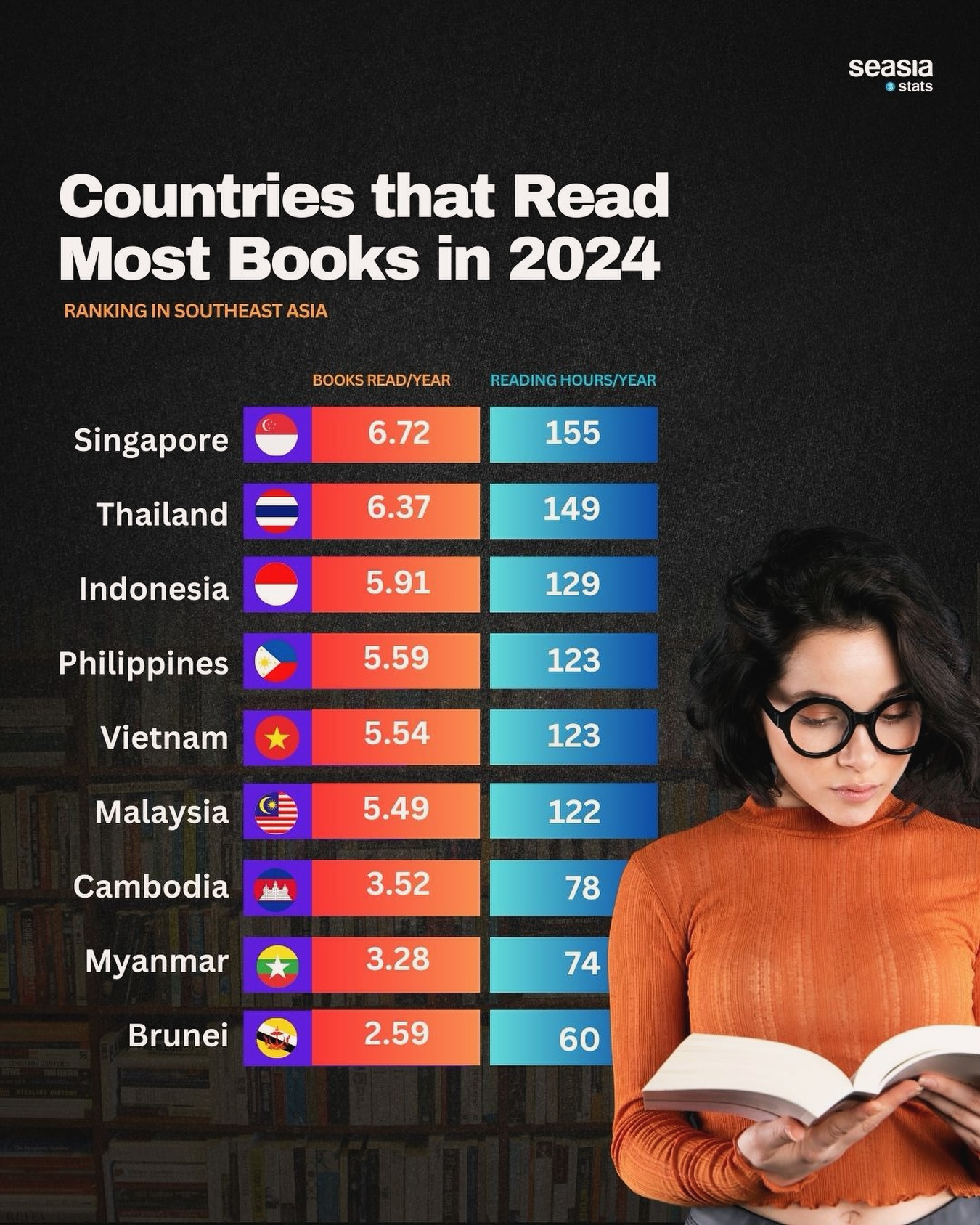In a world increasingly dominated by digital media, the act of reading remains a cherished pastime for many, particularly in Southeast Asia. According to CEOWORLD Magazine's 2024 ranking, Singapore emerges as the leader in book reading time within the region, with residents dedicating an impressive average of 155 hours annually to reading. This commitment to literature not only reflects the city-state's cultural emphasis on education and self-improvement but also highlights a growing awareness of the benefits associated with reading, such as enhanced knowledge and cognitive skills.
Following Singapore is Thailand, where the average reading time stands at 149 hours. The Thai populace displays a notable passion for literature, as reading serves as both an educational tool and a source of entertainment. Indonesia rounds out the top three, with its citizens spending an average of 129 hours a year immersed in books. This commitment underscores a regional trend toward valuing literacy and the arts, contributing to a more informed and engaged society.
The Importance of Reading in Building Knowledge
The act of reading is not merely a leisure activity; it plays a crucial role in personal development and societal growth. Countries that prioritize reading foster a culture of inquiry and critical thinking, leading to better-informed citizens. In Singapore, for instance, the high number of reading hours reflects a broader commitment to education and lifelong learning, vital components of the nation’s success.
In addition to individual benefits, a reading culture can enhance social cohesion. It encourages discussions, promotes empathy through exposure to diverse perspectives, and nurtures a collective understanding of shared values and experiences. The dedication to reading in Southeast Asian countries is an encouraging sign, suggesting that more individuals are seeking knowledge and connection through literature.
Reading Trends in Other Southeast Asian Countries
While Singapore, Thailand, and Indonesia lead the way, other Southeast Asian nations also exhibit varying levels of reading engagement. The Philippines, for example, reports an average of 123 reading hours per year, showcasing a robust cultural appreciation for literature despite the challenges posed by the digital age. Vietnam closely follows, with 123 hours, demonstrating a strong interest in reading that is likely fueled by its rich literary heritage.
Meanwhile, Malaysia and Cambodia also contribute to the regional reading landscape, with averages of 5.49 and 3.52 books read annually, respectively. Myanmar and Brunei trail behind, indicating room for growth in promoting reading as a fundamental cultural value. These statistics paint a diverse picture of reading habits across the region, illustrating both strengths and opportunities for further engagement in literature.
Future Directions: Encouraging a Reading Culture
As Southeast Asia navigates the challenges of modernity, promoting a reading culture becomes increasingly important. Schools, libraries, and community programs can play pivotal roles in encouraging reading among younger generations. By creating accessible spaces for reading and hosting events that celebrate literature, countries can cultivate a more profound appreciation for books.
Moreover, governments and organizations should consider initiatives that promote reading, such as literacy campaigns, book fairs, and partnerships with authors and publishers. By prioritizing reading in public discourse and policy, Southeast Asian nations can ensure that literature continues to thrive, fostering both individual growth and community connection in an ever-evolving landscape.



















